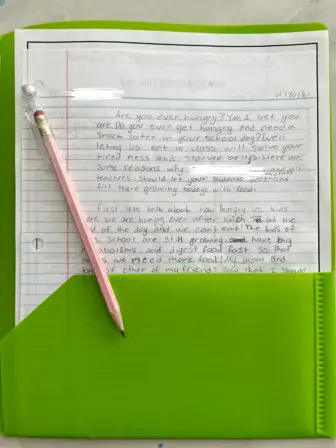What happens when the little people we raise do exactly as we taught them to do?
And what if that action item was not done when or how we imagined, and at an inconvenient time for our own life?
Do we know we are looking at success? Or are we shaken because our little person challenged us, using the authority and confidence we are trying to instill? Will we recognize it? Or will we gaslight the child into silence and subservience?
I’ll provide a real-life situation many parents have experienced, and then I’ll share what my daughter is growing through now.
You are picking up your child from a playdate. You are talking to the parent, who has grown into a friend, and this is one of the only times you get to see each other. You have stepped into their house to pick up your child, whom you have called for, and your child is gathering shoes. With shoes on, your child notices that you are still talking. They wait, tap their feet, and then scamper away to play.
You continue talking to your friend for 10 minutes, until there is a lull. You notice your child is no longer there. You call: “Child! Come on! We have to go!” Child returns to your side, and you and your friend begin another conversation, and the cycle repeats, with you scolding: “You always do this! We have to go!” To which, for the first time, your child responds: “But you were talking! I was waiting!”
Bam. How do you feel? Defensive? Like this didn’t happen? How dare they! “Don’t speak to me that way!” you say. “I have been waiting and waiting for you, Child!” And the two of you are frustrated at each other. But did your child just speak the truth? And did you gaslight to make it feel like it wasn’t you who caused the delay?
Speaking up is hard. Saying the right thing is hard. Knowing what the right thing is is hard. That moment your child talked back (or spoke up) may have been your success, where it feels like a talking-back-to but was a truthful statement.
My daughter is a responder. She responds and lets her thoughts out. Even if the conversation has gone pretty far and she’s sad and getting defeated, she doesn’t give up. I fear sometimes that in our hard discussions, when I am pounding my point, willing her into submission to see things my way (usually in a behavioral brother/sister fight discussion), that I am breaking her.
When she doesn’t give up, as sad and mad as she can be, I am so grateful that her spirit is so strong. I am also a responder. A delayed responder usually, but I talk back. While she may not be doing what I say, she may be doing what I do. Parenting myself in that way is obviously… challenging. I am dealing with a mini-me, as I know how I feel and I don’t want to be crushed.

In school, my daughter is learning to persuade in her writing class. Her teacher is teaching her the paragraph structure of a compelling argument to get something done. Out of the blue one morning, after my daughter and I finished our terse argument about why she didn’t complete a particularly long fraction homework problem, she shared a new development with me.
She shared: “I’m having a hunger protest.”
“A hunger protest?” I said.
“Yes,” she answered. “We are all hungry in class and we want to eat snacks. But our teacher won’t let us. I wrote my essay about it, and my teacher thought it was good. My friend said she is going to make a sign.”
I was a little perplexed. Essay?
That’s when I went to her folder and saw that, indeed, she is learning the art of structuring a compelling argument. But did her teacher realize that she took this assignment seriously?
The writing assignment sheet has blanks to fill in. This is how it reads:
Topic Sentence: I think you should… “Let us eat in class.”
Reason 1: “Teacher should because sometimes us kids are hungry even after lunch and we can’t eat!”
Evidence Sentence: “We have big metabolisms and are growing so we need food.”
Reason 2: “We would be quiet and of course we would not eat loud things that caused distraction.”
Evidence Sentence: “We would be quiet because we are chewing and not talking.”
Reason 3: “Food energizes people when they don’t have any energy.”
Evidence Sentence: “My class is always tired and it is hard to focus when you don’t have any energy.”
Concluding Sentence: Now you know why I think you should… “Let us eat in class.”
Well, then. I can’t wait to see what happens! But I wonder if the teachers were expecting this lesson to cross over into a real-life push for change. Or, if the discussion stays with reasons of why eating in class can’t happen. I have also learned that she signed up for student council and goes to meetings. Perhaps she will bring this up and push on that student council teacher to let her make a slide show, even if it wasn’t part of the plan?
This is kind of like the Beacon bathrooms issue, in which the public bathrooms were mostly closed for decades, with various explanations, until Beaconites protested the 2021 city budget (with signs and megaphones and coordinated call-ins to meetings), which resulted in funding for the opening and cleaning of bathrooms.
Tune in next month!

